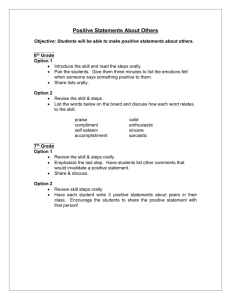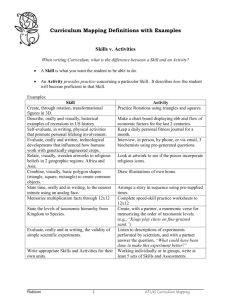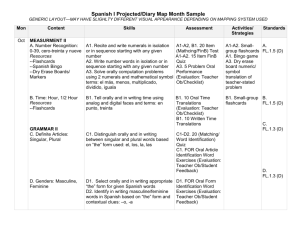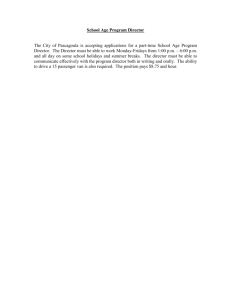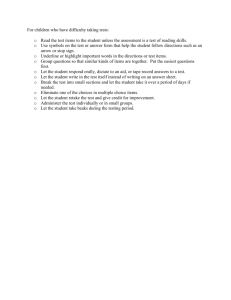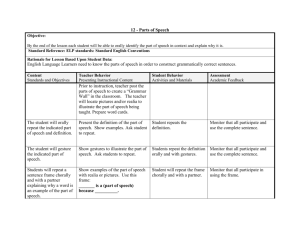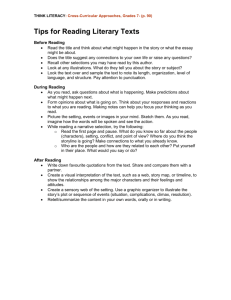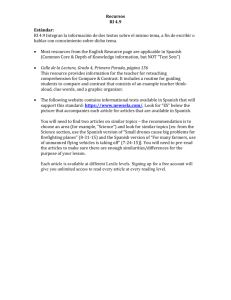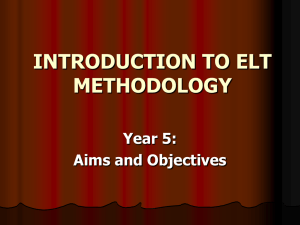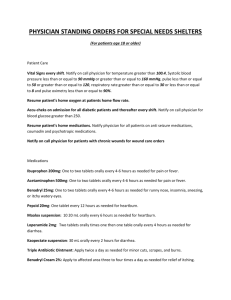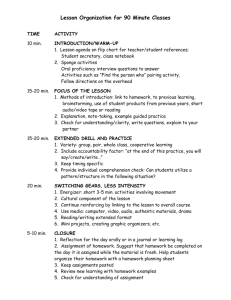AISD Writing Unit of Study
advertisement
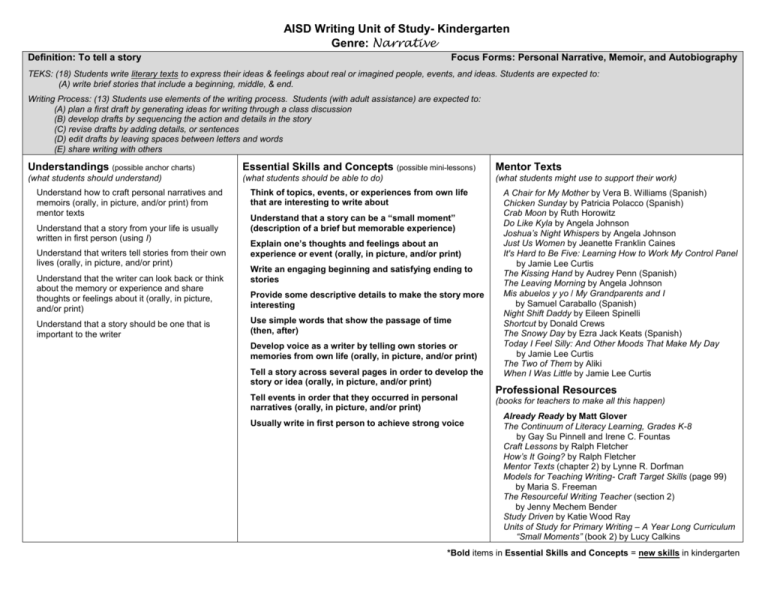
AISD Writing Unit of Study- Kindergarten Genre: Narrative Definition: To tell a story Focus Forms: Personal Narrative, Memoir, and Autobiography TEKS: (18) Students write literary texts to express their ideas & feelings about real or imagined people, events, and ideas. Students are expected to: (A) write brief stories that include a beginning, middle, & end. Writing Process: (13) Students use elements of the writing process. Students (with adult assistance) are expected to: (A) plan a first draft by generating ideas for writing through a class discussion (B) develop drafts by sequencing the action and details in the story (C) revise drafts by adding details, or sentences (D) edit drafts by leaving spaces between letters and words (E) share writing with others Understandings (possible anchor charts) Essential Skills and Concepts (possible mini-lessons) Mentor Texts (what students should understand) (what students should be able to do) (what students might use to support their work) Understand how to craft personal narratives and memoirs (orally, in picture, and/or print) from mentor texts Understand that a story from your life is usually written in first person (using I) Understand that writers tell stories from their own lives (orally, in picture, and/or print) Understand that the writer can look back or think about the memory or experience and share thoughts or feelings about it (orally, in picture, and/or print) Understand that a story should be one that is important to the writer Think of topics, events, or experiences from own life that are interesting to write about Understand that a story can be a “small moment” (description of a brief but memorable experience) Explain one’s thoughts and feelings about an experience or event (orally, in picture, and/or print) Write an engaging beginning and satisfying ending to stories Provide some descriptive details to make the story more interesting Use simple words that show the passage of time (then, after) Develop voice as a writer by telling own stories or memories from own life (orally, in picture, and/or print) Tell a story across several pages in order to develop the story or idea (orally, in picture, and/or print) Tell events in order that they occurred in personal narratives (orally, in picture, and/or print) Usually write in first person to achieve strong voice A Chair for My Mother by Vera B. Williams (Spanish) Chicken Sunday by Patricia Polacco (Spanish) Crab Moon by Ruth Horowitz Do Like Kyla by Angela Johnson Joshua’s Night Whispers by Angela Johnson Just Us Women by Jeanette Franklin Caines It's Hard to Be Five: Learning How to Work My Control Panel by Jamie Lee Curtis The Kissing Hand by Audrey Penn (Spanish) The Leaving Morning by Angela Johnson Mis abuelos y yo / My Grandparents and I by Samuel Caraballo (Spanish) Night Shift Daddy by Eileen Spinelli Shortcut by Donald Crews The Snowy Day by Ezra Jack Keats (Spanish) Today I Feel Silly: And Other Moods That Make My Day by Jamie Lee Curtis The Two of Them by Aliki When I Was Little by Jamie Lee Curtis Professional Resources (books for teachers to make all this happen) Already Ready by Matt Glover The Continuum of Literacy Learning, Grades K-8 by Gay Su Pinnell and Irene C. Fountas Craft Lessons by Ralph Fletcher How’s It Going? by Ralph Fletcher Mentor Texts (chapter 2) by Lynne R. Dorfman Models for Teaching Writing- Craft Target Skills (page 99) by Maria S. Freeman The Resourceful Writing Teacher (section 2) by Jenny Mechem Bender Study Driven by Katie Wood Ray Units of Study for Primary Writing – A Year Long Curriculum “Small Moments” (book 2) by Lucy Calkins *Bold items in Essential Skills and Concepts = new skills in kindergarten
